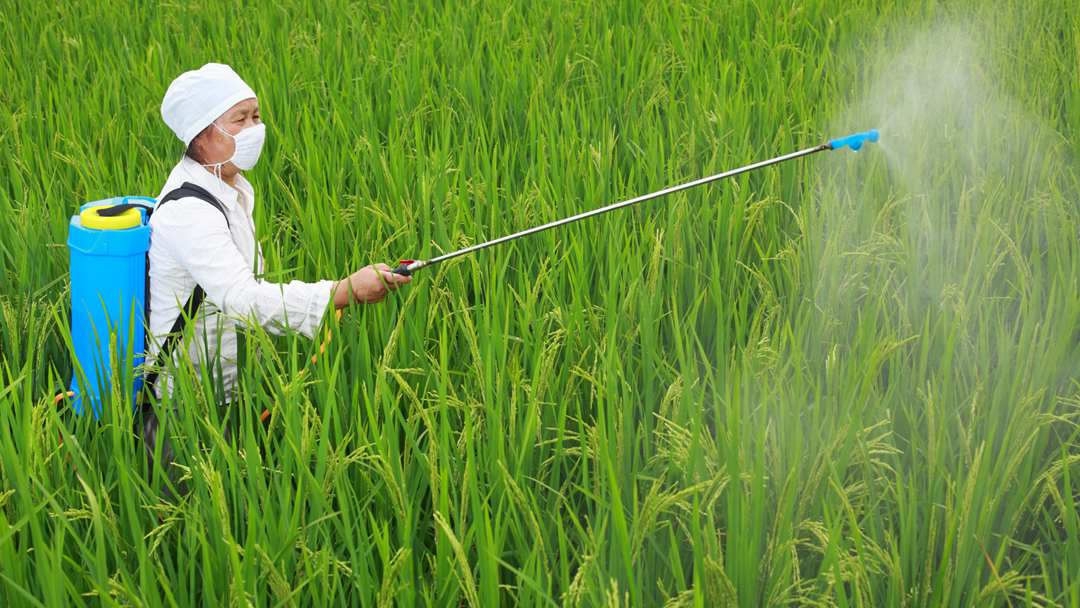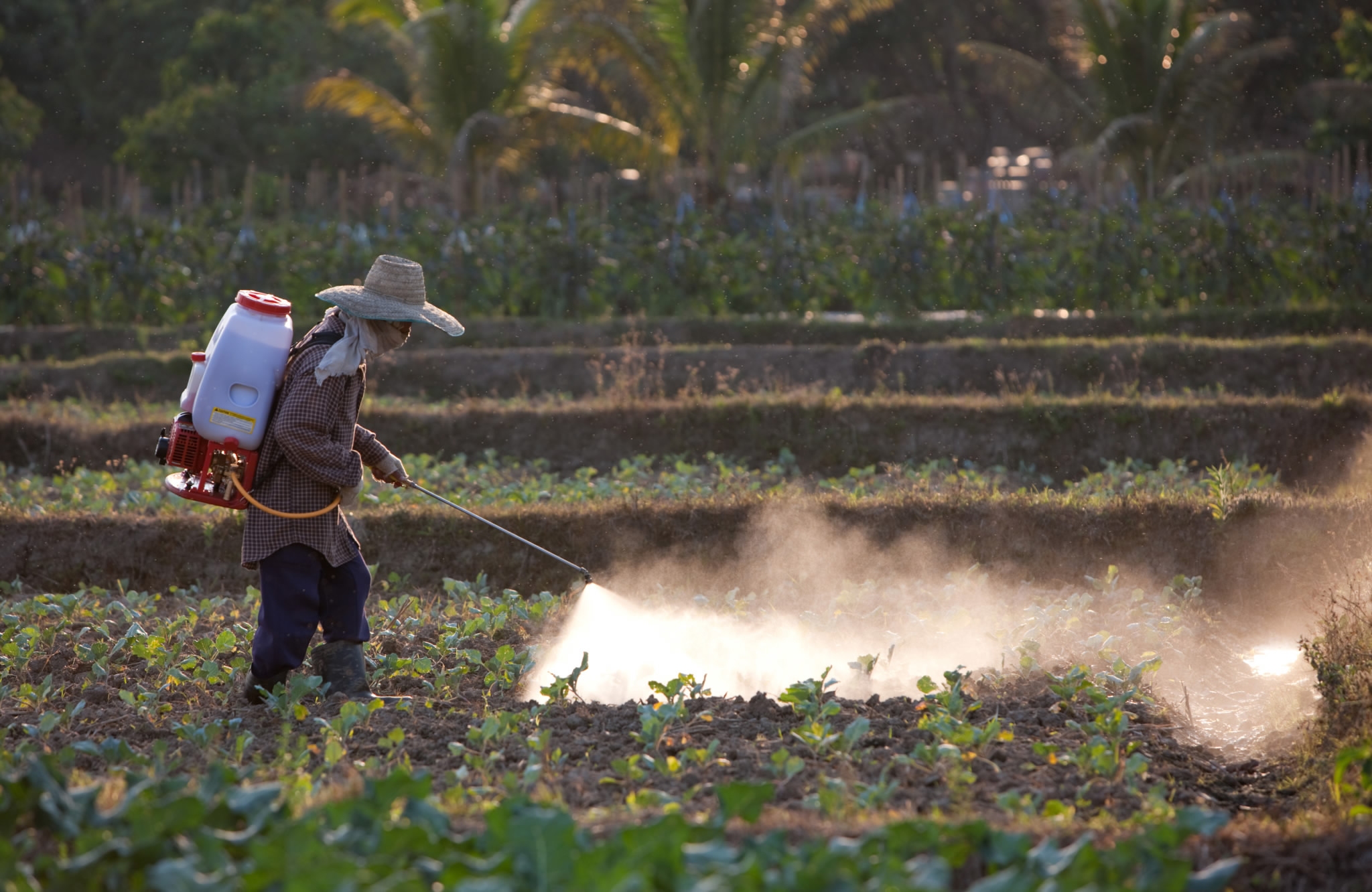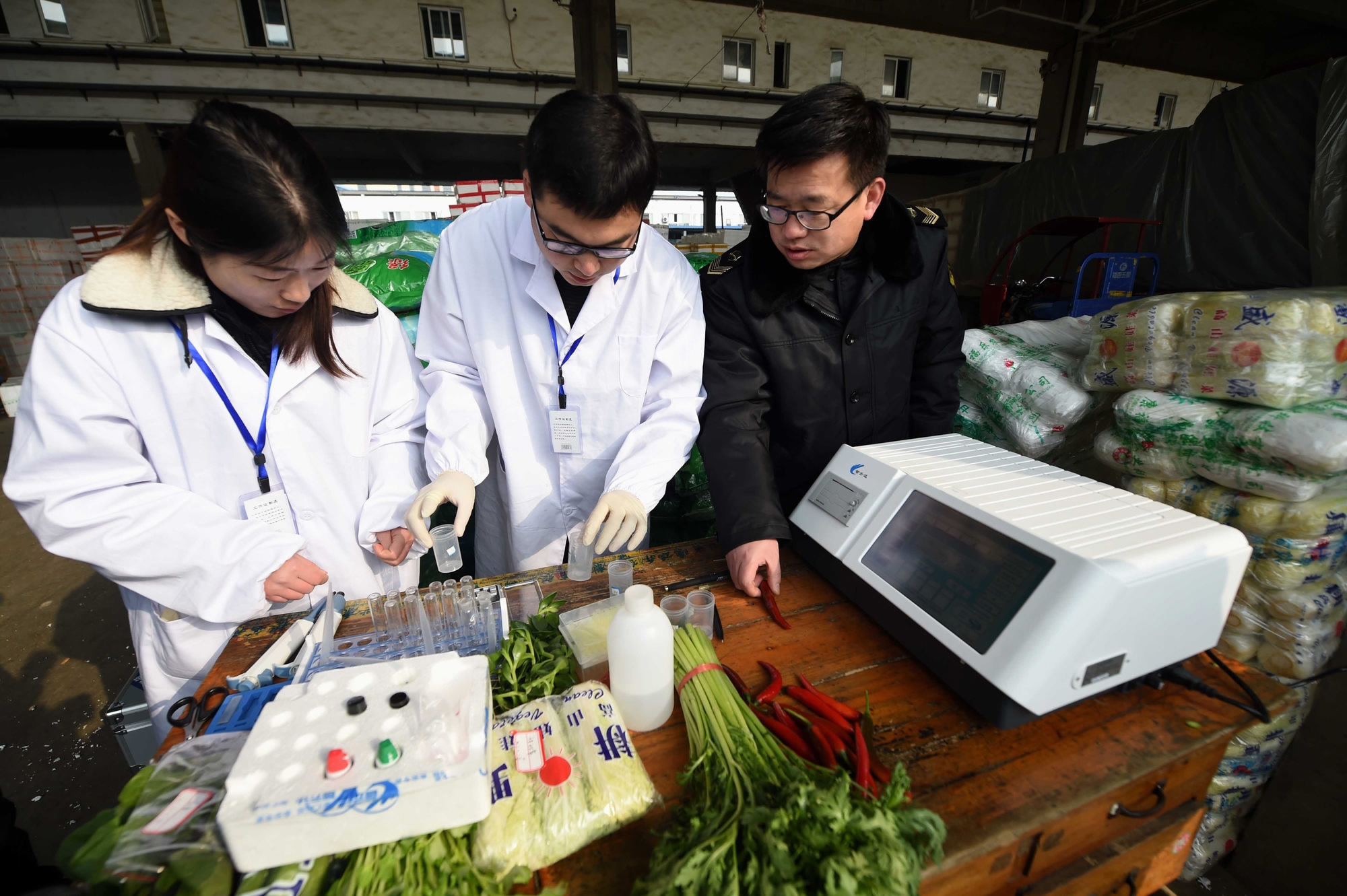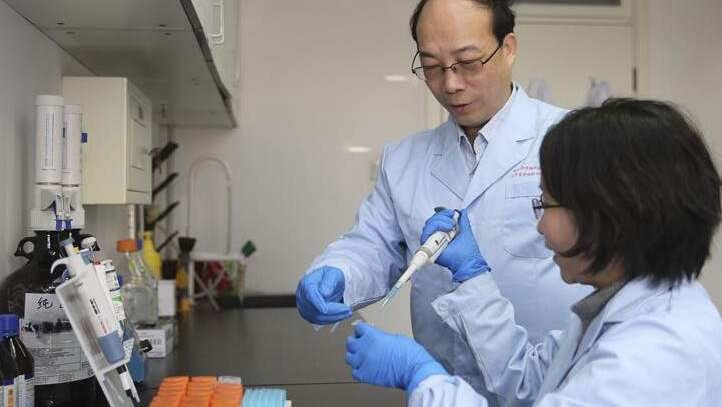
Tech & Sci
15:34, 21-Feb-2017
Pesticides in China enter a new era of high efficiency and low risk
Updated
10:50, 28-Jun-2018

The era of highly toxic pesticides may have come to an end.
Many people feel pesticides are extremely toxic and cause a lot of potential safety problems while killing pests. But those fears may be a thing of the past, said Zheng Yongquan, deputy director of Institute of Plant Protection (IPP), Chinese Academy of Agricultural Science (CAAS).
According to Zheng, today’s pesticides used in China are very different, compared with the pesticides used in the past.

CFP Photo
CFP Photo
First, the chemical composition and structure of the pesticides has changed greatly. In the past, commonly used pesticides contained chlorine and arsenic, or they were organophosphorus pesticides. Now they are mostly bionic pesticides, with significantly reduced toxicity.
Secondly, the pesticides are much more precise. In the past, most of them were neurotoxic agents, which easily led to human poisoning. Now, the pesticides have little influence on human beings because they act on the specific pests by affecting their energy metabolism and material synthesis.
Third, modern pesticides are very effective, so only a little is needed. At present, only less than 2% of pesticides containing highly toxic ingredients and more than 75% of pesticides with a low toxicity or micro-toxicity are used in China. So pesticides in China have entered a new era of high efficiency and low risk.
High efficiency and low risk will become the main topic for the development of pesticides.

Inspection of pesticide residue on vegetables in a market / CFP Photo
Inspection of pesticide residue on vegetables in a market / CFP Photo
The development of pesticides is a process of constantly improved efficacy and reduced risk. According to Zheng, pesticides with high efficiency and low risk should have a few of the following features.
First, the mostly biological effect on the target pest and the needed dosage per unit area is required to be small. The second is low toxicity to humans and livestock, and overall safety to the environment. The third is that pesticides should do no harm to the crops themselves. The fourth, pesticides must be easily degradable and the waste must be safe for the environment.
In addition, Zheng believes that in order to control the risks of pesticide poisoning, management must be strengthened at all stages, including the manufacturing and application process, not only the process of research and development.

Zheng Yongquan at Institute of Plant Protection, Chinese Academy of Agricultural Science in Beijing /Xinhua Photo
Zheng Yongquan at Institute of Plant Protection, Chinese Academy of Agricultural Science in Beijing /Xinhua Photo
In recent years, Zheng's team established a set of pesticide technology systems for high efficiency and low risk at the core of active ingredients, substances for medical treatments, application technology, and risk management.
The team's research resulted in them winning the second prize in the National Scientific and Technological Progress Awards in 2016, and the popularization and application of the result has brought significant social, economic and ecological benefits In Hebei, Shandong, and 28 other provinces in China.
“Our innovative achievements have been adopted by the relevant departments in the Ministry of Agriculture, so the concept of pesticides with high efficiency and low risk has been recognized widely”, said Zheng.

SITEMAP
Copyright © 2018 CGTN. Beijing ICP prepared NO.16065310-3
Copyright © 2018 CGTN. Beijing ICP prepared NO.16065310-3